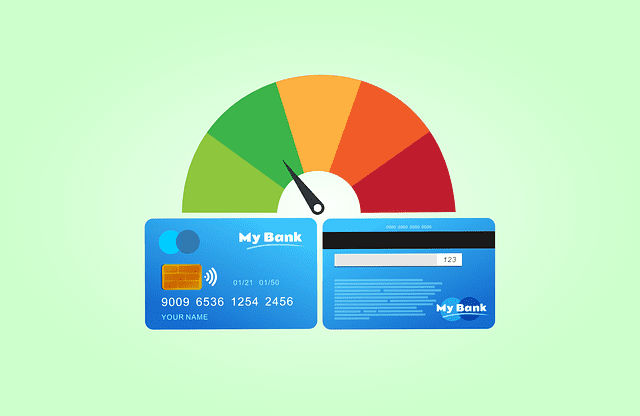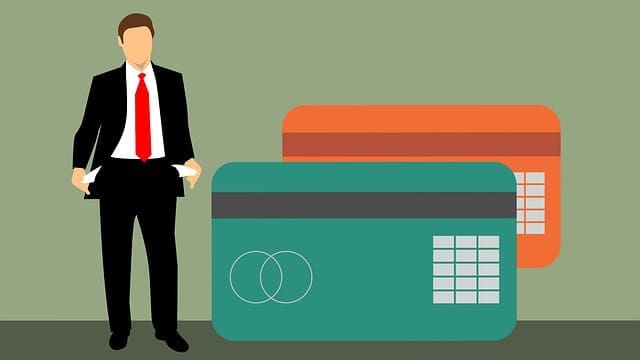Defaulting on loans: it is the worst nightmare of many a borrower. That is for a good reason, of course, considering the negative impact it can have on our lives for years following the incident. This raises the question: how do we stop it from happening in the first place?
They say that prevention is the best medicine, which is absolutely true in this case. Many articles agree with this statement on the internet, such as this one: https://www.investopedia.com/articles/personal-finance/091615/difference-between-restructuring-and-refinancing.asp.
Naturally, this is just one example, and there are plenty more to read that echo similar talking points.
The important thing is that we understand what defaulting is, how it works, and what we can do to prevent it. You see, it is difficult to undo the damage it can have on our credit (and our entire lives). However, there is still plenty of hope when we catch it before it spirals.
What Does it Mean to Default on a Debt?
If you have not made payments on a loan statement in a long time, you are considered to be defaulting on it. Once that happens, the balance is instead sent to a debt collection agency, which will be the one that reaches out to you to attempt to redeem the money owed. Obviously, this is not something that anyone wants to deal with.
Besides being a nuisance, it can have serious ramifications for your financial health. When this occurs, your credit score will take a sizable dive. This makes sense, considering it is a number that demonstrates how trustworthy you are to lenders – so, it is absolutely something that we need to keep in mind if we are considering taking out a loan in the first place.
This can also result in you being denied certain credit agreements in the future. So, that means that any time you try to apply for a credit card, mortgage, or auto loan, you could easily end up not fulfilling the score requirements if this happens. As you can tell, it is certainly a circumstance to avoid.
Prevention Options: What they are and How they Work

You may have already surmised this based on the article thus far, but there are a few ways to prevent a debt default. As I mentioned above, it is something that we should absolutely avoid to the best of our abilities. So, how can we do that, then?
The obvious answer is, of course, to simply pay our bills on time. However, this is not always feasible. It is important that we acknowledge this since sometimes circumstances happen.
Unfortunately, it can be easy to slip through the cracks and end up saddled with a ton of late fees and other charges simply because we cannot keep up.
That is when the other options I will discuss come into play. One of the first things you could do is contact your lender. Often, when we explain the situation and request some sort of alteration to the agreement in question, they are willing to work with us.
It is not always a guarantee, but certainly something worth considering.
The other option I would like to highlight today is utilizing a consolidation or refinancing loan. How do they work? Well, some research can get you an answer fairly quickly. You could plug them into your search engine of choice, or you can go here to find some details before I get into it a little further!
Consolidation or Refinancing
These are common solutions for those of us who end up swimming in several different types of debt or anyone who has several different loans that they are paying off individually each month. That can absolutely be very stressful, especially if you do not have the best memory. Personally, that is one of the most difficult things for me – trying to keep track of all the bills I need to pay can get dicey if my memory is failing me (as it often does).
So, how does this work, then? The core idea is to take the balance of the loan designed for this purpose to “buy out” the other ones you have. Obviously, it is a bit more complex than that, but that is the main idea to keep in mind as I proceed.
There are a few things that you should double-check before you do something like this, though. The first thing is to determine whether your current lenders will charge you an early repayment fee. While that might seem a bit ridiculous (seeing as you are fulfilling your end of the agreement early, from your point of view), they exist because the lender is losing money on the interest you would have paid.
It is inconvenient, and if they charge you an expensive fee, it may not be worth consolidating it.
However, lenders are usually willing to negotiate or at least talk things through, so that may be something to try if you face this issue. Just make sure to ask about it before you decide refinancing is for you.
In terms of how they work, most of the time, they have something that is called a “fixed” interest rate. That means that it will not fluctuate as the time period of your agreement goes on. Depending on the state of the economy, this can work in our favor or against it. If inflation rates are on the rise (as they are right now), it does tend to benefit us since our interest rate will not increase on this loan.
As you look for a lender to work with for one of these, do remember that you should compare the different rates they offer. It is probably not the best idea to simply select the first offer that we are extended, even when we need a deal. Do not be afraid to push for a better offer, no matter your circumstances. Sometimes it can pay off!
Hopefully, this article has helped you understand more about debt consolidation and refinancing. While it is a rich topic and has a lot to cover, I went over some of the things that I believe are most important. With any further questions, consider checking out the resources that I shared.
Depending on what lender you decide to work with, your new terms could be quite different or similar to those you moved away from. Keep track of your new monthly payment, and ensure you do not forget to fulfill that end of the agreement.
Doing this may not eliminate your debts, but it can make the load more manageable, especially regarding those monthly bills.
At the least, it is an option we can explore to prevent a default from occurring.
Featured Image by Mohamed Hassan from Pixabay




